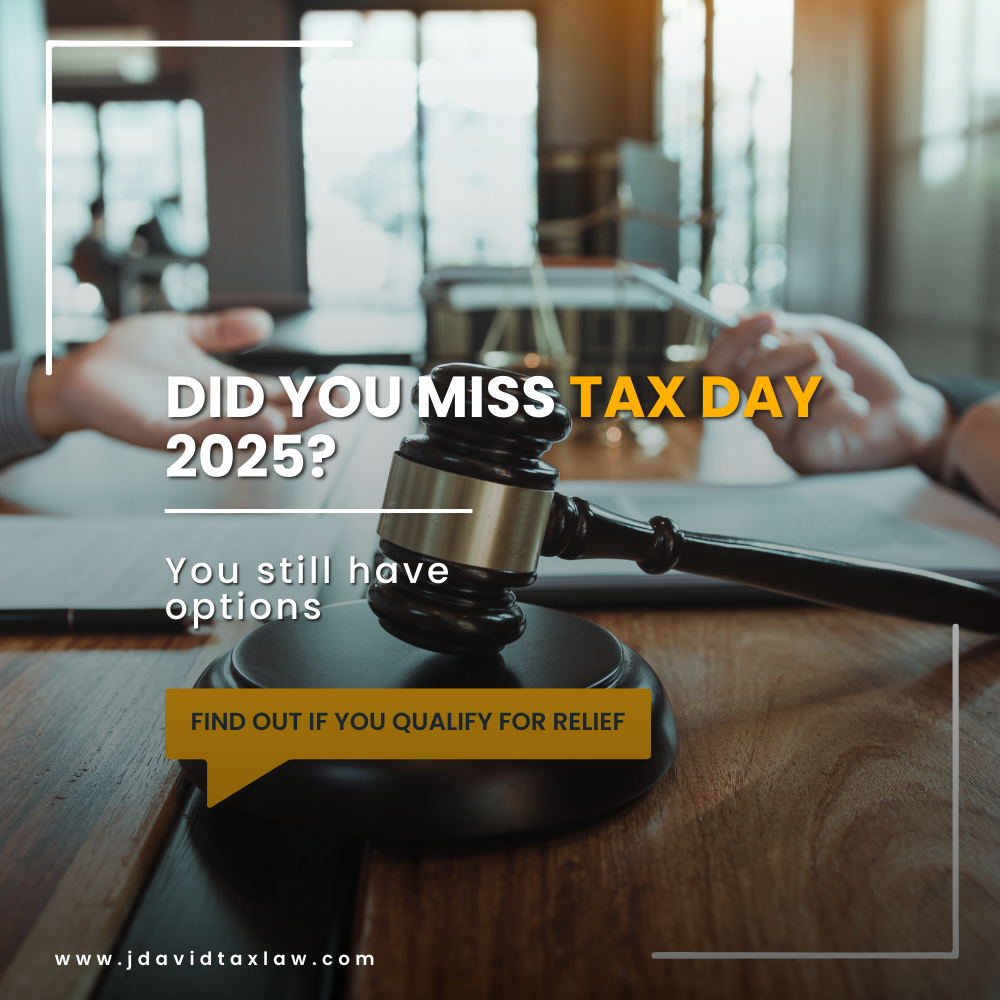
Yes, a tax attorney can negotiate with the IRS on your behalf,reducing penalties and resolving tax debt.Call our IRS tax relief attorney at (888) 342-9436.





If you’re a North Carolina resident and have recently received a notice of deficiency from the state’s department of revenue, it’s normal to feel worried or upset. But don’t ignore it or set it aside. Many times, taxpayers overlook these notices or misunderstand what they mean, leading to more serious complications down the line. Your best course of action is to address the notice promptly. Review the document carefully to understand the specific issue raised.
A notice of deficiency in North Carolina is a communication from the North Carolina Department of Revenue that informs taxpayers of discrepancies or issues found during a tax audit. It typically outlines the proposed changes to the taxpayer's reported income, deductions, or credits, and provides an opportunity for the taxpayer to respond or dispute the findings. If you have received a notice of deficiency, it is important to consult with a local tax attorney who specializes in North Carolina tax law, like J. David Tax Law LLC, to understand your rights and options for responding to the notice.
Receiving a notice of deficiency from the North Carolina Department of Revenue can be a stressful and overwhelming experience. This notice typically indicates that the state has reviewed your tax return and disagrees with certain items, resulting in additional taxes owed. It is crucial to understand what happens when you receive this notice and how to respond.
When you receive a notice of deficiency, it means that the North Carolina Department of Revenue has made adjustments to your tax return based on their review and calculations. The notice will outline the specific changes they have made and provide detailed explanations for their reasoning. It is important to thoroughly review the notice and ensure that you understand the adjustments being proposed.
The first step is to carefully review the notice and compare it with your original tax return. Pay close attention to any discrepancies or errors that might have led to the discrepancies identified by the department of revenue.
Once you have reviewed the notice and identified any potential issues, it is advisable to seek professional assistance from an experienced tax attorney, like the tax attorneys at J. David Tax Law LLC, who specialize in North Carolina tax law. They can help navigate through the complexities of responding to a notice of deficiency and provide guidance tailored to your individual circumstances.
After receiving a notice of deficiency from the North Carolina Department of Revenue, it is crucial to be aware of the deadline for filing an appeal if you disagree with the adjustments made by the state. Failing to meet this deadline can result in forfeiting your right to challenge the assessment.
The deadline for filing an appeal can vary depending on various factors, including the type of tax involved and the specific circumstances of your case. Generally, you will have 90 days from the date of the notice to file an appeal with the North Carolina Office of Administrative Hearings (OAH).
Filing an appeal requires submitting a formal written protest that presents your arguments against the adjustments made by the North Carolina Department of Revenue. This document should include relevant supporting evidence, such as documentation or legal precedent, that supports your position.
It is highly advisable to seek professional assistance when preparing and filing an appeal. An experienced tax attorney familiar with North Carolina tax law can guide you throughout this process, helping ensure that your arguments are presented effectively and maximizing your chances of a successful outcome.
If you have defaulted on your federal student loans or owe certain other educational debts, such as grant overpayments, the Department of Education can request a tax refund garnishment. Furthermore, it is worth noting that not only educational debts but also unpaid federal and state taxes and even outstanding medical bills can potentially lead to a tax refund garnishment, leaving many taxpayers wondering if everything can be taken away.

When it comes to dealing with a notice of deficiency, you may question whether you should seek legal representation. While it is not mandatory to have a tax attorney by your side during this process, there are several reasons why it can be highly beneficial. Whether you are facing a complex situation or simply want peace of mind, having a tax lawyer who specializes in resolving tax debt from notice of deficiencies can make a world of difference.
Having legal representation increases your chances of obtaining a favorable outcome. Attorneys experienced in tax appeals understand the nuances of the law and can navigate through complexities that might seem baffling to someone unfamiliar with the process. They possess the knowledge and expertise needed to build a strong case on your behalf, ensuring that all relevant information is presented effectively.
Of course, some individuals may argue that hiring a tax attorney for a notice of deficiency appeal is unnecessary and costly. They might assert that taking on the challenge themselves saves money since legal fees can add up. However, it’s important to consider the potential long-term financial impact. A successful appeal could result in substantial savings on your taxes for years to come. In contrast, making errors during the appeal process could lead to higher tax payments unnecessarily for those same years.
To put it into perspective, think of hiring a tax attorney for a notice of deficiency, like seeking professional advice when building a house. Sure, you could construct your dream home on your own, relying solely on YouTube tutorials and trial-and-error methods. But wouldn’t you feel more confident and secure with the expertise of an architectural firm? Their guidance ensures compliance with building codes, maximizes efficiency, and minimizes potential issues. In the same way, a lawyer familiar with tax debt appeals can guide you through the process, guarding your interests and increasing your chances of success.
While it may seem tempting to save money by forgoing legal representation during a notice of deficiency appeal, the potential benefits far outweigh the initial cost. A skilled tax attorney can provide invaluable guidance, increase your chances of success, and help you navigate the complexities of the process. Investing in professional counsel can ultimately save you not only time and stress but also money in the long run.
When it comes to navigating the complexities of a notice of deficiency in North Carolina, choosing the right tax attorney can make all the difference. A skilled and knowledgeable tax attorney can not only guide you through the legal process but also advocate for your rights and ensure that your appeal is strong and persuasive. Let’s explore some key factors to consider when selecting the right tax attorney for your notice of deficiency case.
One factor to consider is the tax attorney’s experience in handling similar cases. It’s important to find a tax attorney who specializes in tax law and has extensive experience dealing with Notices of Deficiency. An experienced tax attorney will have a deep understanding of the applicable laws and regulations, as well as insight into the tactics employed by tax authorities. This knowledge can be invaluable in building a strong defense and increasing your chances of a successful appeal.
Additionally, it’s crucial to choose a tax attorney who has a track record of success in handling notice of deficiency appeals. Don’t hesitate to ask about their past cases and outcomes to ensure they have a proven ability to deliver positive results for their clients. A tax attorney with a history of achieving favorable resolutions can give you confidence and peace of mind during what could be a stressful and uncertain process.
While experience and success are undoubtedly important factors, it’s equally essential to select a tax attorney who understands your unique situation and is willing to give your case the attention it deserves. Some tax attorneys may take on too many cases simultaneously, leaving little time for effective communication or personalized strategies. On the other hand, a tax attorney who genuinely cares about your case will invest the necessary time and effort into understanding your specific circumstances, identifying potential flaws in the assessment, and crafting a compelling argument on your behalf.
Our tax relief attorneys specialize in tax problems and tax debt resolutions
Get started with a 100% free consultation

Yes, a tax attorney can negotiate with the IRS on your behalf,reducing penalties and resolving tax debt.Call our IRS tax relief attorney at (888) 342-9436.

Missed the April 15 Tax Day 2025 deadline? Learn about IRS penalties, late payment relief, and how to settle your tax debt. Call us at (888) 342-9436.

IRS grants a tax deadline extension to California wildfire victims.Can you delay filing and payment until Oct. 15, 2025?Call at (888) 342-9436 to find out.
Get IRS Tax Assistance Within 24 Hours